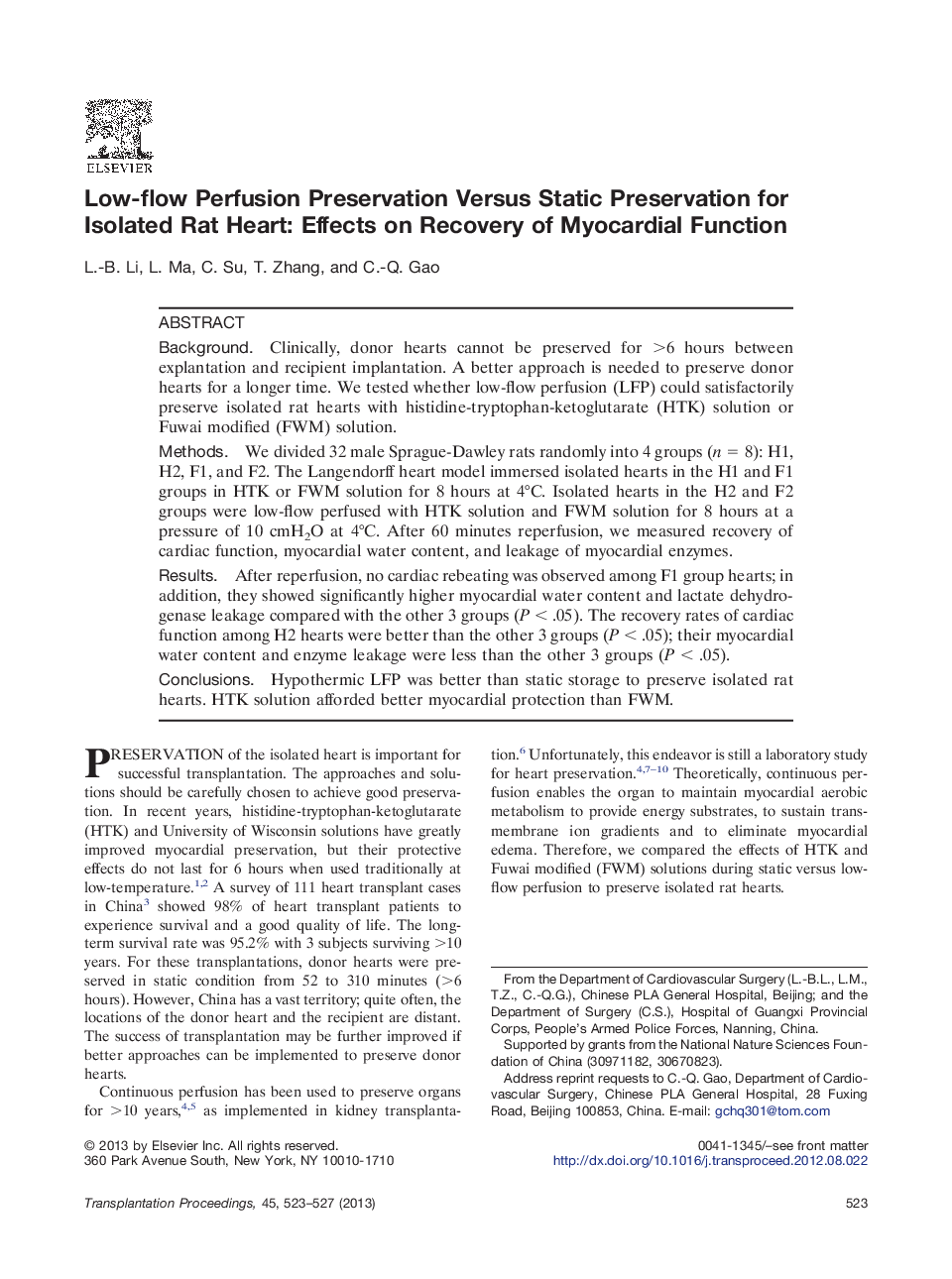| Article ID | Journal | Published Year | Pages | File Type |
|---|---|---|---|---|
| 4256135 | Transplantation Proceedings | 2013 | 5 Pages |
BackgroundClinically, donor hearts cannot be preserved for >6 hours between explantation and recipient implantation. A better approach is needed to preserve donor hearts for a longer time. We tested whether low-flow perfusion (LFP) could satisfactorily preserve isolated rat hearts with histidine-tryptophan-ketoglutarate (HTK) solution or Fuwai modified (FWM) solution.MethodsWe divided 32 male Sprague-Dawley rats randomly into 4 groups (n = 8): H1, H2, F1, and F2. The Langendorff heart model immersed isolated hearts in the H1 and F1 groups in HTK or FWM solution for 8 hours at 4°C. Isolated hearts in the H2 and F2 groups were low-flow perfused with HTK solution and FWM solution for 8 hours at a pressure of 10 cmH2O at 4°C. After 60 minutes reperfusion, we measured recovery of cardiac function, myocardial water content, and leakage of myocardial enzymes.ResultsAfter reperfusion, no cardiac rebeating was observed among F1 group hearts; in addition, they showed significantly higher myocardial water content and lactate dehydrogenase leakage compared with the other 3 groups (P < .05). The recovery rates of cardiac function among H2 hearts were better than the other 3 groups (P < .05); their myocardial water content and enzyme leakage were less than the other 3 groups (P < .05).ConclusionsHypothermic LFP was better than static storage to preserve isolated rat hearts. HTK solution afforded better myocardial protection than FWM.
